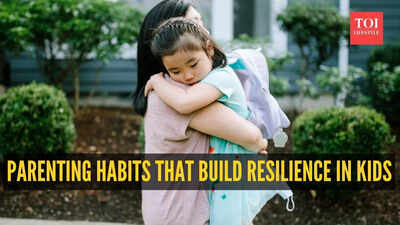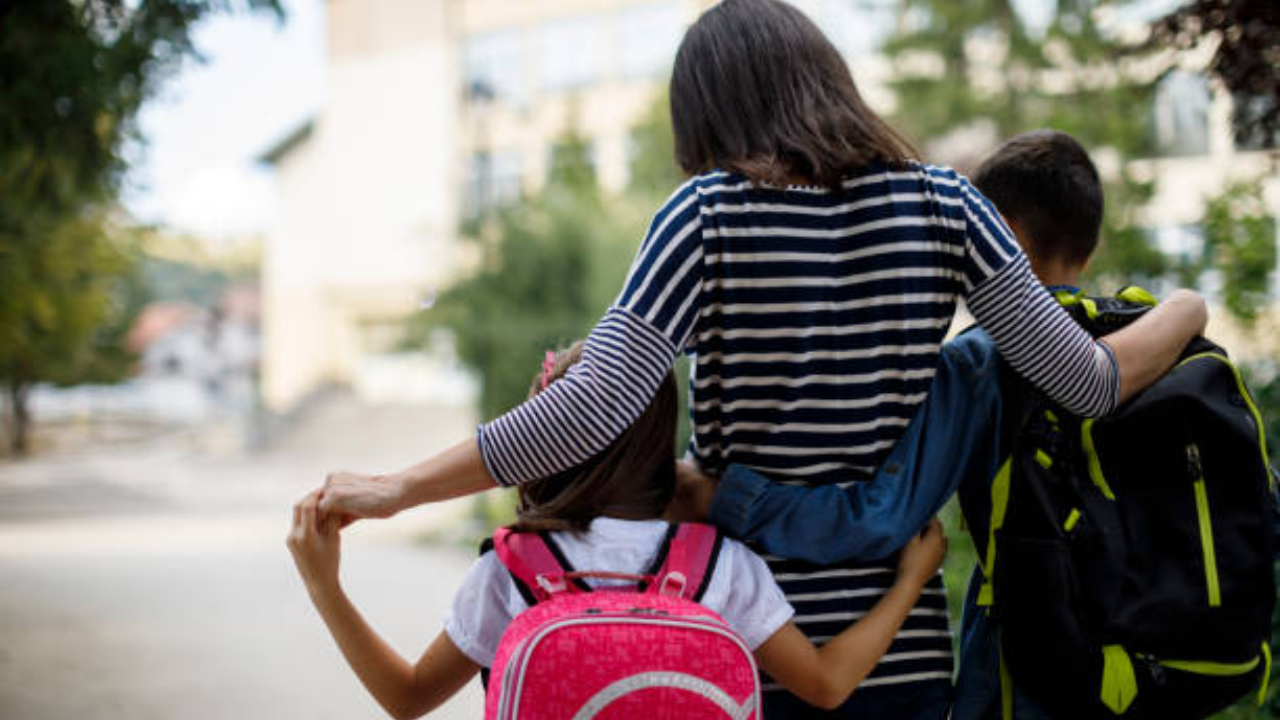ARTICLE AD BOX

4 Parenting Shifts That Could Transform How Your Child Handles Life’s Toughest Moments
Parenting often means protecting so we shield our children from pain, offer solutions and step in before they falter but in doing so, we may inadvertently send a message, “You’re weak if you need help.
” The reality is that resilience is born when children know they can fall and that help is available.In an interview with the Times of India, Riddhi Doshi Patel, Child Psychologist and Parenting Counsellor, shared, “As a parent, we are quick to give solutions to our children or we are quick to protect our little ones from all the harm or hurt that may be caused to them. This never allows us to teach them to seek help and support if and when they need and doesn't allow our little ones to fall and know how to get up by themselves or to be resilient.
”In this era of heightened mental-health awareness, the key parenting challenge is not just what we teach our children, it is how we behave ourselves. By modelling vulnerability and reaching out, we show that help-seeking is not shameful, it is wise.
Why this matters right now
Studies consistently link resilience (the ability to cope, adapt and bounce back) with healthier emotional outcomes in children and adolescents. A 2021 systematic review in PMC found resilience in children and adolescents is strongly associated with better mental health and suggested that resilience deserves “a more prominent role in research, prevention programmes and practice.”

Psychologists Say These 4 Parenting Habits Build Lifelong Emotional Strength in Children
A recent 2025 SpringerLink study, of adolescents during the Covid-19 pandemic, found that higher resilience and lower stigma were significantly correlated with more positive help-seeking attitudes. A 2024 Wiley Online Library study investigating stigma, resilience and help-seeking among undergraduates found that higher perceived stigma was negatively associated with resilience and with willingness to seek help. Taken together, the research underlines a powerful truth that one of the strongest gifts we can give our children is the belief that asking for help is strength, not weakness.
Four everyday parenting strategies
Drawing on the voices of two experienced professionals, here are four actionable parenting practices:
- Share your own day — the problem and the process: Doshi Patel encouraged parents to talk about their challenges in an age-appropriate manner and said, “Share about your day with your child. In an age appropriate manner, share the problems you faced and how you solved them.” When children witness adults navigating setbacks and asking for help, they internalise a healthier narrative, “It’s okay to struggle. It’s okay to ask.”
- Ask for help with them — model the behaviour: Doshi Patel suggested, “Ask for help and support to them and in front of them. Children learn best by observation. We teach them to help others, so they must know it is okay to ask for help as well.” By saying “I don’t know how to do this, can you help me?” in front of your children, you normalise the act of reaching out. This dismantles shame before it has root.
- Use empathic, validating language: Bringing her expertise to the same, Pooja Taparia, CEO at Arpan, emphasised the power of supportive language and said, “The most important factor that helps children seek help and disclose sexual abuse without shame or fear is an environment that is trusting, supportive, and empathetic. This begins with open and ongoing conversations about personal safety.” She recommended to start early, as young as two or three years, by teaching children the correct names for all body parts, including private parts and helping them identify unsafe touches and situations. Taparia said, “This is crucial, as abusers often use the silence, shame, and guilt surrounding private parts to manipulate children and keep the abuse a secret. Use everyday moments to teach them that it’s okay to say ‘No’ and to get away from an unsafe situation, and to reach out to a helpful adult. This builds confidence and helps them seek help if they ever face an unsafe situation. When a child shares an unsafe experience, listen to them and believe them. Stay calm, avoid anger or blame, and use words like ‘It’s not your fault’ and ‘You were brave to tell me.’ Never make promises you cannot keep; instead, be honest and explain to whom you need to share to keep them safe. The trust and connection will help children build resilience and bounce back from abuse.” Always reassure them that abuse is never their fault. Use simple phrases like, “It’s okay to feel upset. I’m here with you. You did the right thing by telling me.” These seed resilience and humanise emotions.
- Let them fall (within safe zones) — then help them rise: Doshi Patel said, “Simply let your child experience in safe zones. Allow the child to fall and to fail. Your child should know you have their back.”
Children need opportunities to try, mess up and ask for help. These micro-failures build competence, confidence and the readiness to seek support when things feel bigger.
The broader benefit: Reducing shame, increasing connection
When children grow knowing that help-seeking is normal and supported, they are less likely to internalise stigma or feel shame around their feelings.
They are more likely to talk, more likely to trust caregivers and this trust strengthens the parent-child bond.

The New Parenting Goal: Raising Kids Who Aren’t Afraid to Ask for Help (Image: iStock)
Parenting today is not just about making life smooth, it is about preparing your child for life’s vibrations. By consistently modelling help-seeking, dropping shame, offering empathy and letting your child experience manageable setbacks, you are building resilience that carries far beyond childhood.In a world where seeking support often remains shrouded in silence or fear, your home can become the exception by being a space where help is normal, resilience is grown and stigma has no hold and that is perhaps the most enduring legacy you can build.

 1 hour ago
3
1 hour ago
3








 English (US) ·
English (US) ·